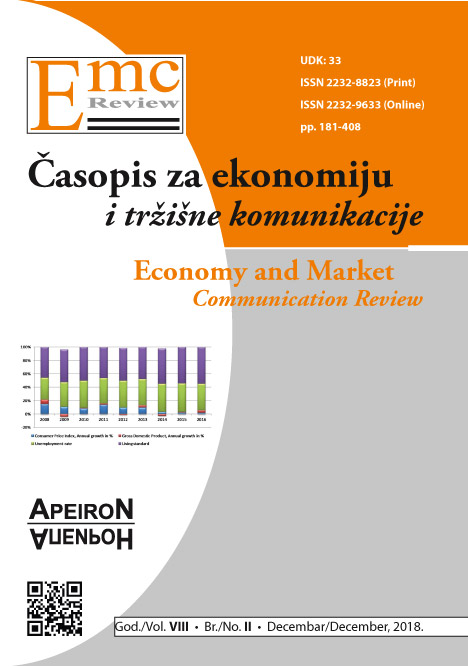MACROECONOMIC MOVEMENTS OF THE WESTERN BALKAN COUNTRIES ECONOMY / MAKROEKONOMSKA KRETANJA PRIVREDE ZEMALJA ZAPADNOG BALKANA
DOI:
https://doi.org/10.7251/EMC1802257MAbstract
The aim of this research is to determine based on a statistical analysis of the macroeconomic trends, the achieved level of recovery and development in the economy of the Western Balkan countries after 2008. In the global economic history, 2008 will be remembered as the year in which many developed and developing countries faced an economic crisis, which was reflected in the decline in general economic indicators.
Some experts explain economic crises and recession as accumulated imbalances in relations between basic macroeconomic aggregates and in that sense the crisis is just one of the stages in business cycles. The paper deals with theoretical views regarding this topic, and the conducted empirical research included four countries of the Western Balkans, Serbia, Croatia, Montenegro and Bosnia and Herzegovina. The survey gives a clear overview of the macroeconomic trends of the Western Balkan countries with appropriate explanations, which enabled the selection of countries by set criteria. Comparative analysis between countries pointed to good and bad macroeconomic trends in certain periods.
